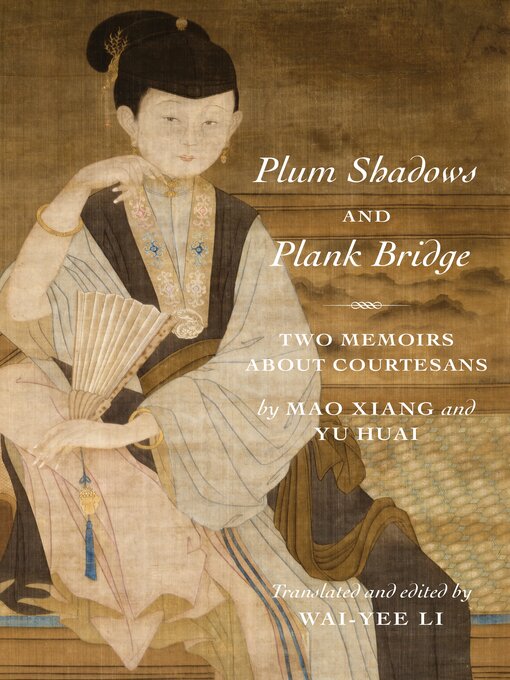Amid the turmoil of the Ming-Qing dynastic transition in seventeenth-century China, some intellectuals sought refuge in romantic memories from what they perceived as cataclysmic events. This volume presents two memoirs by famous men of letters, Reminiscences of the Plum Shadows Convent by Mao Xiang (1611–93) and Miscellaneous Records of Plank Bridge by Yu Huai (1616–96), that recall times spent with courtesans. They evoke the courtesan world in the final decades of the Ming dynasty and the aftermath of its collapse.
Mao Xiang chronicles his relationship with the courtesan Dong Bai, who became his concubine two years before the Ming dynasty fell. His mournful remembrance of their life together, written shortly after her early death, includes harrowing descriptions of their wartime sufferings as well as idyllic depictions of romantic bliss. Yu Huai offers a group portrait of Nanjing courtesans, mixing personal memories with reported anecdotes. Writing fifty years after the fall of the Ming, he expresses a deep nostalgia for courtesan culture that bears the toll of individual loss and national calamity. Together, they shed light on the sensibilities of late Ming intellectuals: their recollections of refined pleasures and ruminations on the vagaries of memory coexist with political engagement and a belief in bearing witness. With an introduction and extensive annotations, Plum Shadows and Plank Bridge is a valuable source for the literature of remembrance, the representation of women, and the social role of intellectuals during a tumultuous period in Chinese history.
- Available now
- New eBook additions
- New kids additions
- New teen additions
- Most popular
- Try something different
- Manga to Read (or Re-Read)
- Elections, Coups, & Sociopolitical Upheaval
- Celebrating Indigenous Peoples
- Manga
- See all
- Available now
- New audiobook additions
- New kids additions
- New teen additions
- Most popular
- Try something different
- See all

